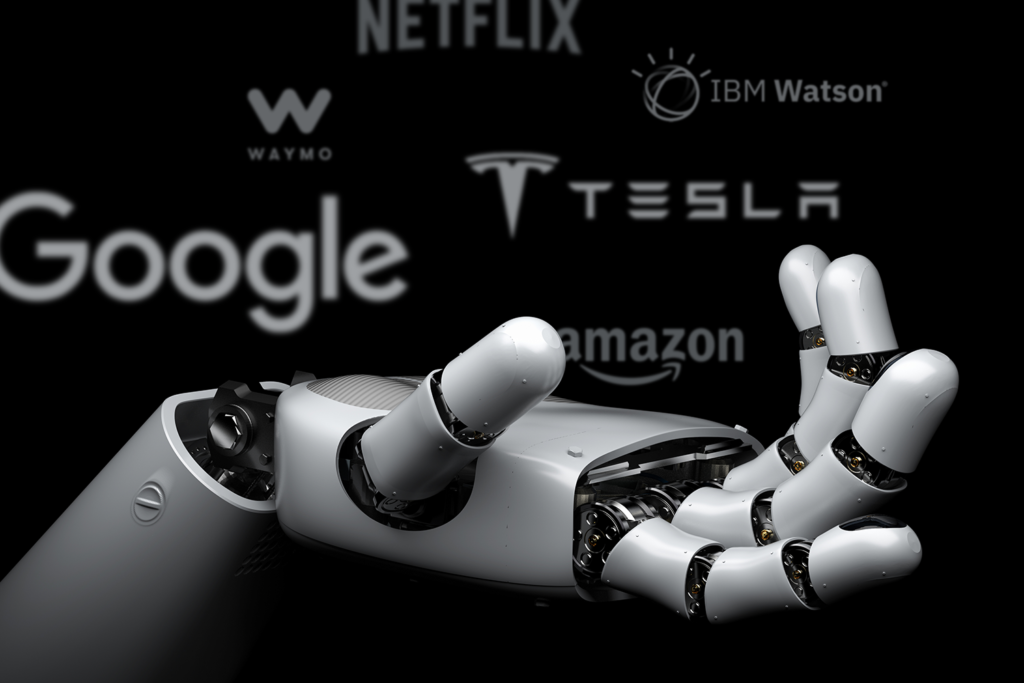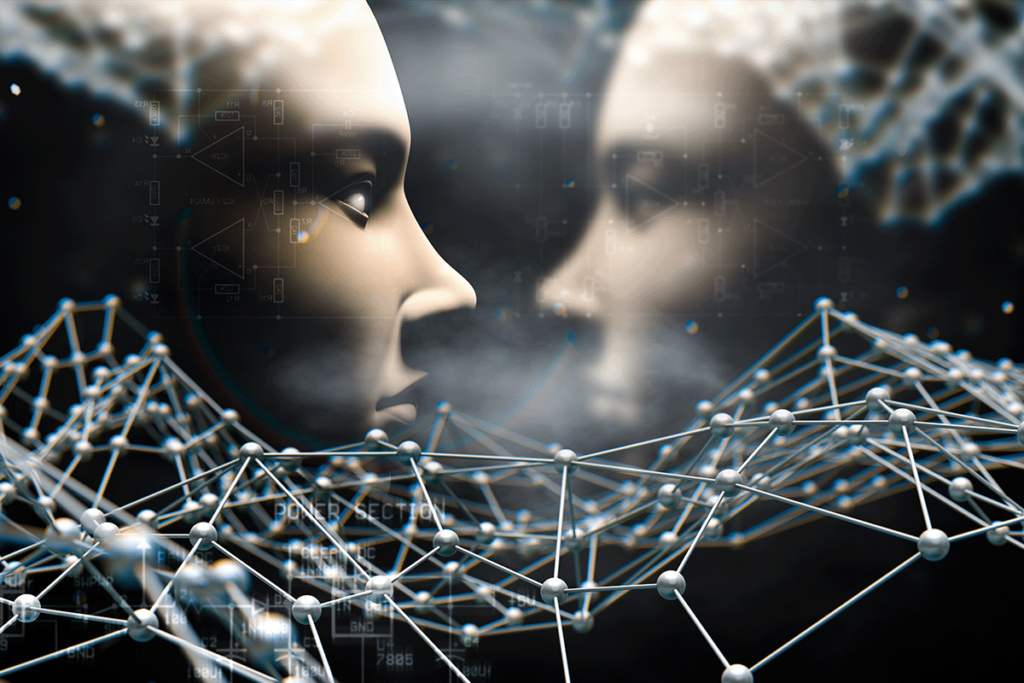Artificial Intelligence (AI) stands as a beacon of innovation in technological advancements, representing the fusion of algorithms and machine learning that enables systems to simulate human cognitive processes. Its significance permeates nearly every sector, revolutionizing industries, processes, and consumer experiences. AI, at its core, encapsulates the ability of machines to learn, reason, and adapt, ushering in an era of unparalleled efficiency and transformative capabilities. However, alongside its transformative potential, it’s essential to consider the Advantages and Disadvantages of AI integration. This helps navigate potential challenges effectively and ensures responsible deployment across various domains.
In today’s rapidly evolving world, the applications of AI span far and wide, from healthcare and finance to marketing and transportation. In healthcare, AI streamlines diagnostics, making swift and accurate assessments, while in finance, it optimizes investment strategies and risk management. Industries like marketing and advertising harness its power for personalized consumer experiences, and in transportation, AI drives the development of autonomous vehicles, reshaping the way we move.
This article embarks on a journey to unveil the layers of AI. It explores its remarkable advantages while shedding light on its inherent disadvantages. The benefits span from enhancing operational efficiency and automating tasks to amplifying data analysis. This enables predictive insights, fostering innovation, and enriching user experiences. Conversely, we also navigate the concerns of potential job displacement, data privacy dilemmas, biases in decision-making, over-reliance, and intricate costs associated with implementation and maintenance.
Join us in this exploration as we uncover the intricate tapestry of AI, where its growth potential intertwines with the challenges it poses. As we navigate these dual dimensions, we aim to paint a comprehensive picture of AI, highlighting its brilliance and the critical considerations that shape its integration into our world.
Advantages of Artificial Intelligence

Advantages and Disadvantages of AI in Efficiency and Automation:
Artificial Intelligence redefines efficiency by automating repetitive tasks across industries, significantly streamlining processes. By delegating mundane operations to AI-powered systems, organizations witness a remarkable surge in productivity and accuracy. This automation not only expedites operations but also liberates human resources to focus on strategic, innovative endeavors, amplifying overall efficiency. However, it’s crucial to consider the Advantages and Disadvantages of AI integration to ensure optimal outcomes.
Advantages and Disadvantages of AI in Data Analysis and Decision-Making:
The unparalleled capabilities of AI in data analysis serve as a cornerstone for informed decision-making. With its adeptness at processing colossal volumes of data, AI algorithms uncover invaluable insights, aiding businesses in making data-driven decisions. This swift and precise analysis provides a competitive edge by identifying trends, opportunities, and potential risks. Human research might overlook these. However, understanding the Advantages and Disadvantages of AI integration is essential. It helps navigate potential challenges and maximize benefits in data-driven decision-making processes.
Advantages and Disadvantages of AI in Predictive Capabilities:
The predictive power of AI transcends conventional strategies. By forecasting trends and consumer behaviors, AI empowers businesses to anticipate market shifts and adapt proactively. This ability to predict, whether in demand trends or financial fluctuations, facilitates more effective resource allocation and risk mitigation. It fosters agile and responsive business strategies. However, it’s essential to weigh the Advantages and Disadvantages of AI integration. This helps harness its predictive capabilities optimally while mitigating potential drawbacks.
Advantages and Disadvantages of AI in Innovation and Creativity:
AI catalyzes innovation, collaborating with human creativity to break traditional boundaries. In creative fields, AI merges with human ingenuity to generate art, music, and literature, opening new frontiers in creativity and expression. This collaboration between AI and human creativity represents a realm where innovation thrives beyond traditional confines. Nonetheless, exploring the Advantages and Disadvantages of AI integration is crucial to navigating potential challenges and maximizing creative potential effectively.
Advantages and Disadvantages of AI in Improved User Experience:
Personalization and intuitive interfaces driven by AI redefine user experiences. Through chatbots, virtual assistants, and tailored content delivery, AI elevates user satisfaction by offering customized recommendations and seamless customer service. The interaction between AI and users transcends the conventional, enhancing engagement and creating more satisfying experiences. However, it’s essential to explore the Advantages and Disadvantages of AI integration to ensure that user experiences are optimized while mitigating potential drawbacks effectively.
The multifaceted advantages of Artificial Intelligence weave a tapestry of innovation, efficiency, and transformative potential, reshaping the landscape of industries and human experiences.
Disadvantages of Artificial Intelligence

Advantages and Disadvantages of AI in Job Displacement and Unemployment:
As AI streamlines processes by automating routine tasks, however, the concern of job displacement looms large. While it enhances efficiency, it also potentially renders specific roles obsolete, raising significant fears of unemployment. Industries relying on repetitive tasks face the challenge of upskilling or redeploying their workforce. To align with the changing job landscape, it’s crucial to consider the advantages and disadvantages of AI integration. This helps navigate potential challenges effectively and ensure responsible deployment across various domains.
Data Privacy and Security Concerns:
The proliferation of AI relies heavily on extensive data utilization, thus sparking debates about data privacy and security. With vast amounts of personal data being collected and utilized, there arises a pressing need to fortify data protection measures. Instances of data breaches and the ethical use of personal information underpin the urgency for robust security protocols and ethical guidelines. Therefore, considering the Advantages and Disadvantages of AI integration becomes crucial in addressing these concerns effectively while harnessing the benefits of AI-driven data utilization.
Bias and Lack of Transparency:
AI systems are not immune to biases, often reflecting the preferences in the data they are fed. This perpetuates challenges related to fairness and transparency in decision-making processes. The lack of clarity in how these algorithms make decisions exacerbates concerns about their ethical implications, creating a demand for more transparent and unbiased AI models.
Dependence and Overreliance on AI:
Overreliance on AI systems may diminish human judgment. While AI aids decision-making, excessive dependence may erode critical human decision-making abilities. Striking a balance between the capabilities of AI and human judgment becomes imperative, avoiding overreliance and ensuring that human oversight remains integral.
High Implementation Costs and Maintenance:
The vast potential benefits of AI come with significant financial investments. Initial implementation and ongoing maintenance costs can be prohibitive for many businesses. The need for specialized talent to develop, implement, and maintain these systems further compounds the financial challenge, especially for smaller enterprises.
Case Studies or Examples

Real-world examples highlighting AI’s advantages:
Numerous real-life cases vividly illustrate the transformative impact of AI across diverse sectors. For instance, in healthcare, AI-powered diagnostic tools like IBM Watson and Google’s DeepMind showcase exceptional accuracy in disease detection, revolutionizing medical diagnosis. Similarly, companies like Amazon and Netflix leverage AI algorithms to provide personalized recommendations, enhancing user experiences and driving customer satisfaction.
The development of autonomous vehicles by pioneering companies like Tesla and Waymo demonstrates AI’s potential to reshape the future of transportation. It promises safer and more efficient mobility solutions. Additionally, financial markets benefit from AI-powered predictive analytics. This is evident in platforms like Kavout and Sentient Technologies, enabling more informed investment decisions and predictive insights.
Real-world instances also shed light on the complexities and challenges AI poses. Notable cases have exposed the biases present in AI systems, such as Amazon’s recruitment algorithms, highlighting the ethical dilemmas surrounding biased decision-making. Moreover, concerns over facial recognition technologies’ inaccuracies and privacy implications underscore the need for greater transparency and regulation in AI development.
Furthermore, the observable job displacements in sectors like manufacturing and customer service due to increased automation emphasize the human impact of AI’s rapid progression. This necessitates proactive management and strategies for workforce transitions. Considering the Advantages and Disadvantages of AI integration becomes essential. This helps in navigating these real-world complexities effectively while striving for responsible AI deployment and development. These in-depth case studies and real-world examples provide a compelling and comprehensive understanding of AI’s exceptional potential and intricate challenges. They offer a nuanced perspective on its influence in diverse industries and society.
Future of AI and Conclusion
Potential advancements and evolving trends:
The future of Artificial Intelligence brims with thrilling possibilities and ongoing evolution. Emerging trends herald the development of AI that is powerful but also explainable and ethical. AI’s growing role in healthcare promises to revolutionize diagnostics, treatment, and patient care, potentially leading to more accurate and personalized medical solutions. Meanwhile, the relentless pursuit of autonomous systems, coupled with breakthroughs in natural language processing, reinforcement learning, and the advent of quantum computing, hints at a new era of AI capabilities. These trends open doors to more efficient, sustainable, and sophisticated AI solutions that will play pivotal roles in the future.
Balancing the pros and cons of AI:
Achieving a harmonious balance between the advantages and limitations of AI is imperative. This equilibrium involves proactively addressing challenges such as job displacement, algorithmic biases, and overreliance on AI. It harnesses its immense potential for innovation, efficiency, and problem-solving. Implementing robust regulatory frameworks and ethical guidelines will be central. This is to navigate the intricate landscape of AI’s impact on society and business. It ensures responsible and beneficial integration that safeguards individuals and organizations.
Summarizing the impact of AI on society and businesses:
In summation, the impact of AI on society and businesses has been nothing short of transformative. Its integration has accelerated breakthroughs in healthcare, finance, transportation, and many other sectors, catapulting efficiency, fostering innovation, and enhancing user experiences. Yet, it also instigates vital conversations about societal and ethical implications. Considering the Advantages and Disadvantages of AI integration becomes paramount in navigating these complexities effectively while maximizing its benefits and mitigating potential drawbacks.
Navigating the Impact of AI Integration
As we look ahead, the need for ongoing discussions and a cooperative approach to maximize AI’s potential while prudently mitigating its adverse effects is paramount. A future awaits where AI augments human capabilities, upholds ethical standards, and pushes achievable boundaries. As we embark on this AI-infused journey into the future, we’re not just witnessing progress; we’re actively shaping it. This is guided by a profound respect for the potential and responsibilities that come with the transformative power of Artificial Intelligence.
In summation, the impact of AI on society and businesses has been nothing short of transformative. Its integration has accelerated breakthroughs in healthcare, finance, transportation, and many other sectors, catapulting efficiency, fostering innovation, and enhancing user experiences. Yet, it also instigates vital conversations about societal and ethical implications. Considering the Advantages and Disadvantages of AI integration becomes paramount in navigating these complexities effectively while maximizing its benefits and mitigating potential drawbacks.
As we look ahead, the need for ongoing discussions and a cooperative approach to maximize AI’s potential while prudently mitigating its adverse effects is paramount. A future awaits where AI augments human capabilities, upholds ethical standards, and pushes achievable boundaries. As we embark on this AI-infused journey into the future, we’re not just witnessing progress; we’re actively shaping it, guided by a profound respect for the potential and responsibilities that come with the transformative power of Artificial Intelligence.
Are you looking to enhance your brand’s content strategy through organic social media? Dive into our latest article on ORGANIC SOCIAL MEDIA to discover invaluable insights and strategies to elevate your online presence. Explore how you can leverage organic social media to engage your audience effectively and foster meaningful connections. Click the link to unlock the secrets of crafting a compelling content strategy today!

















